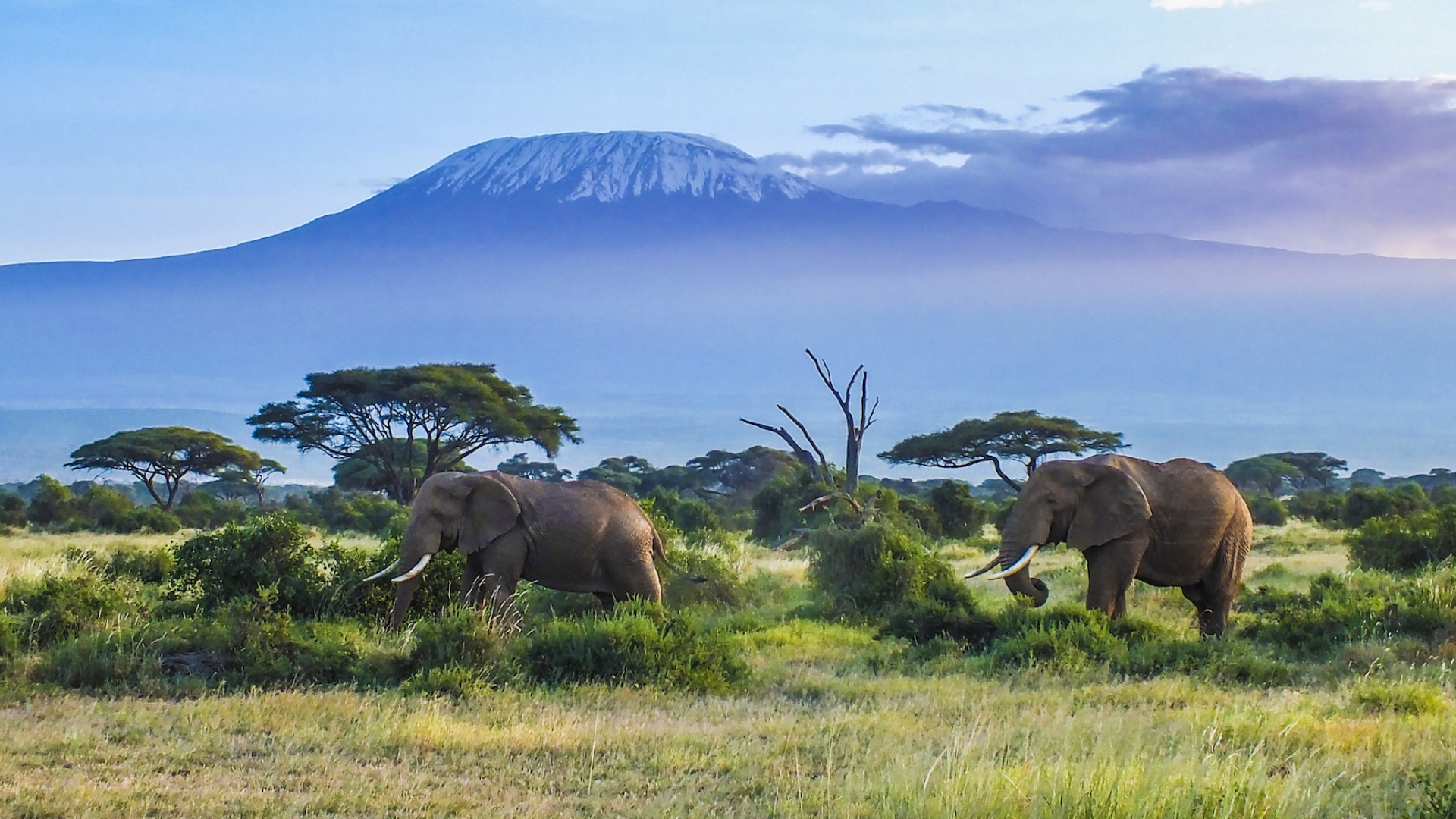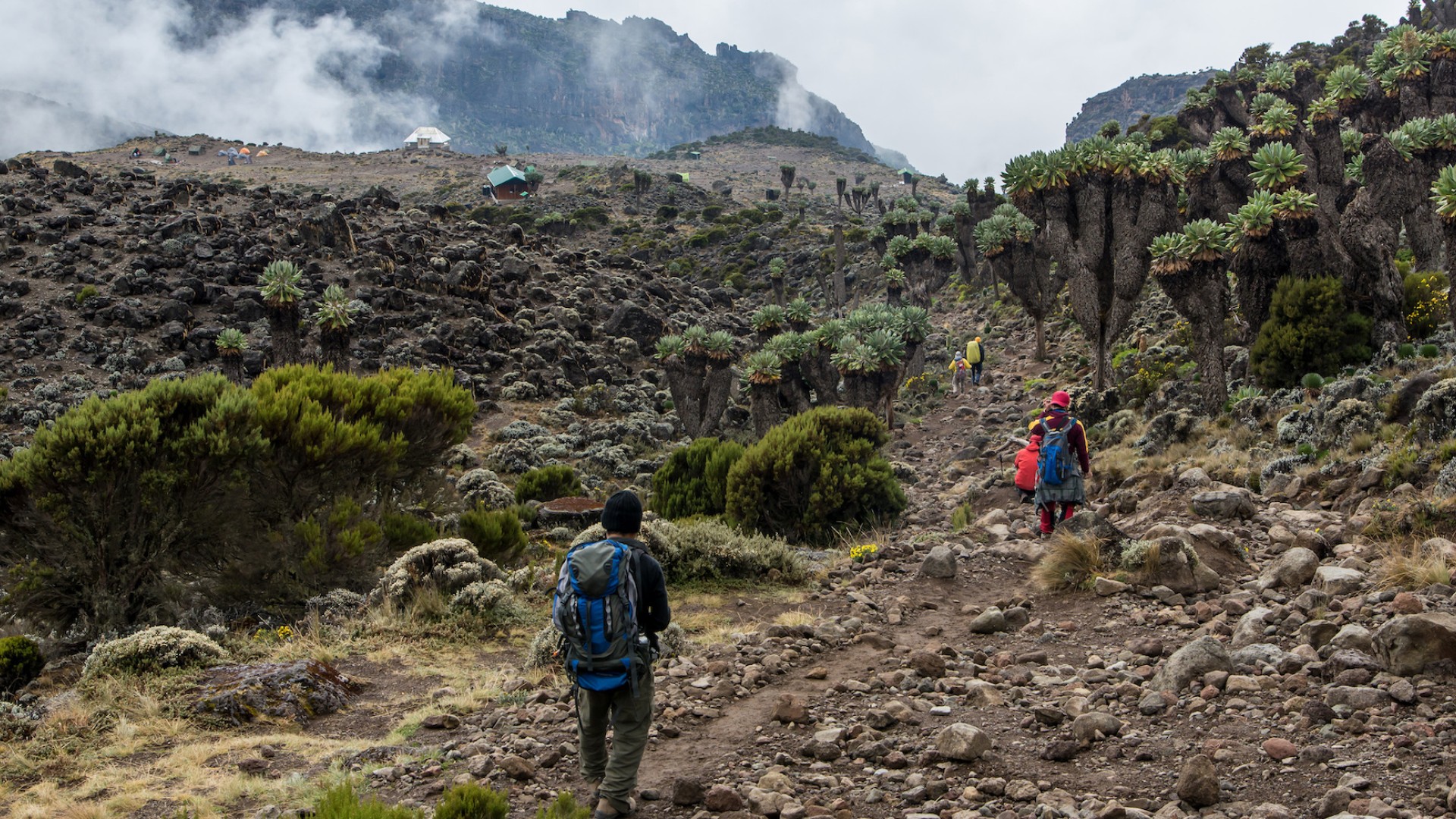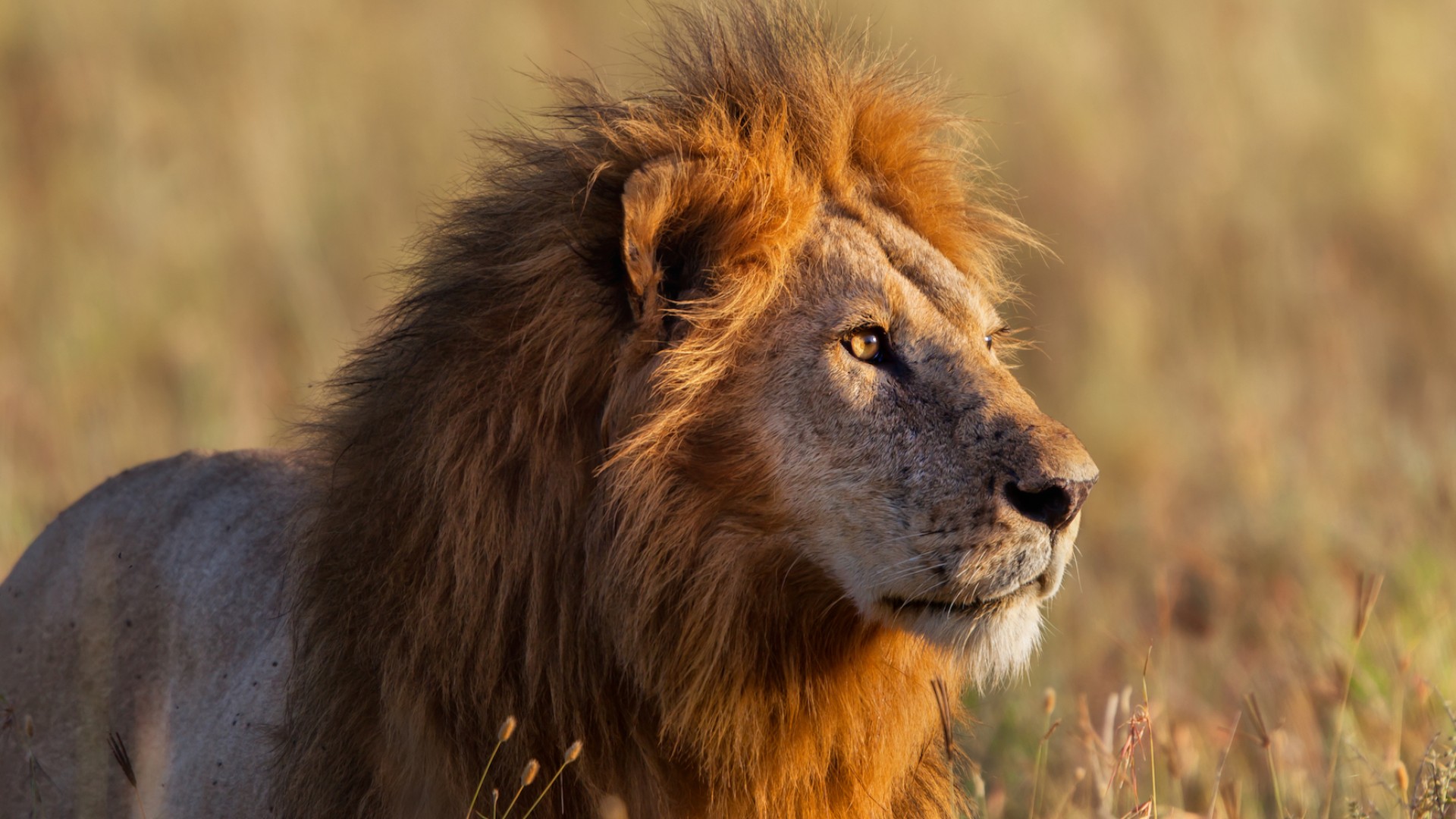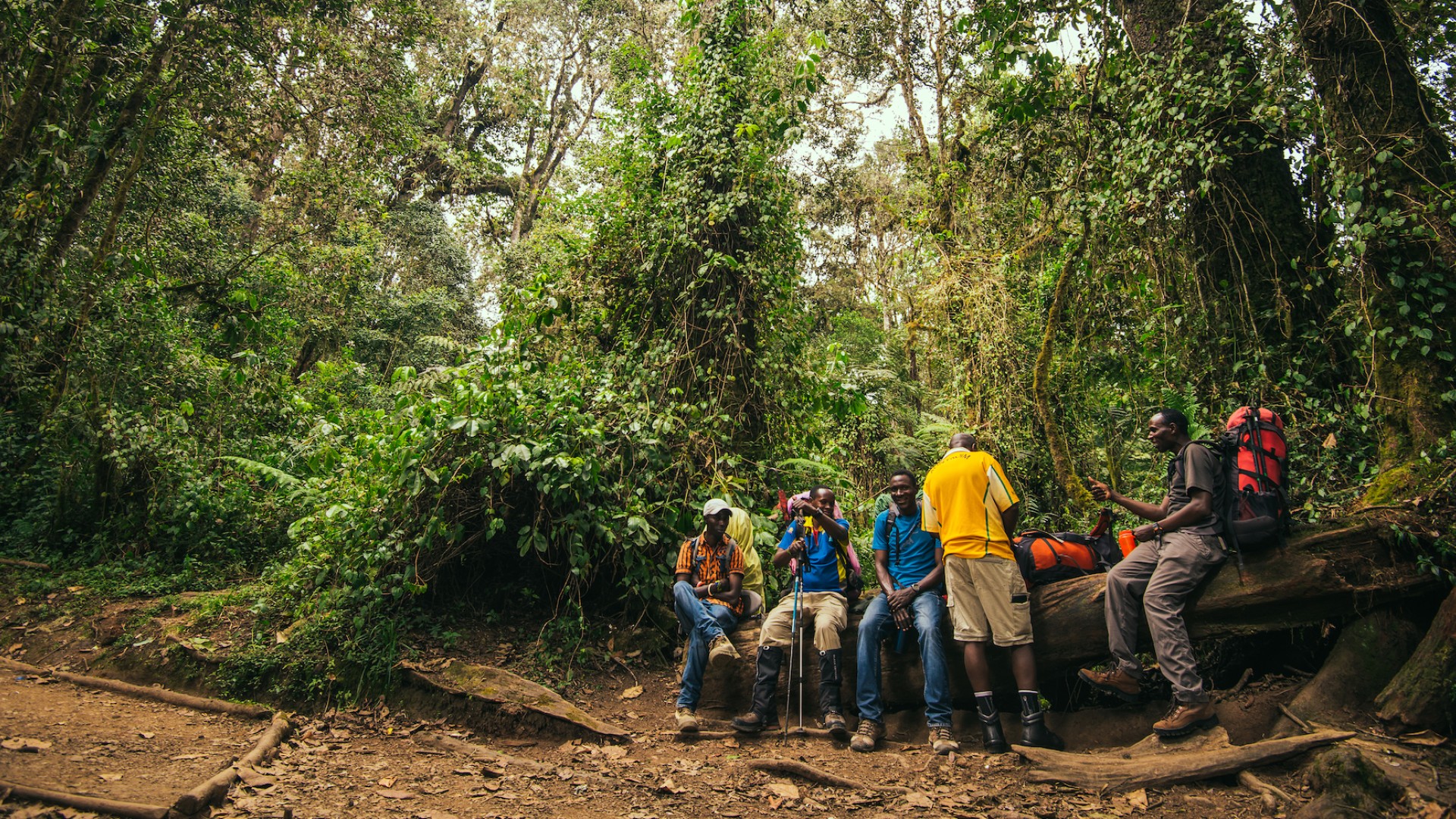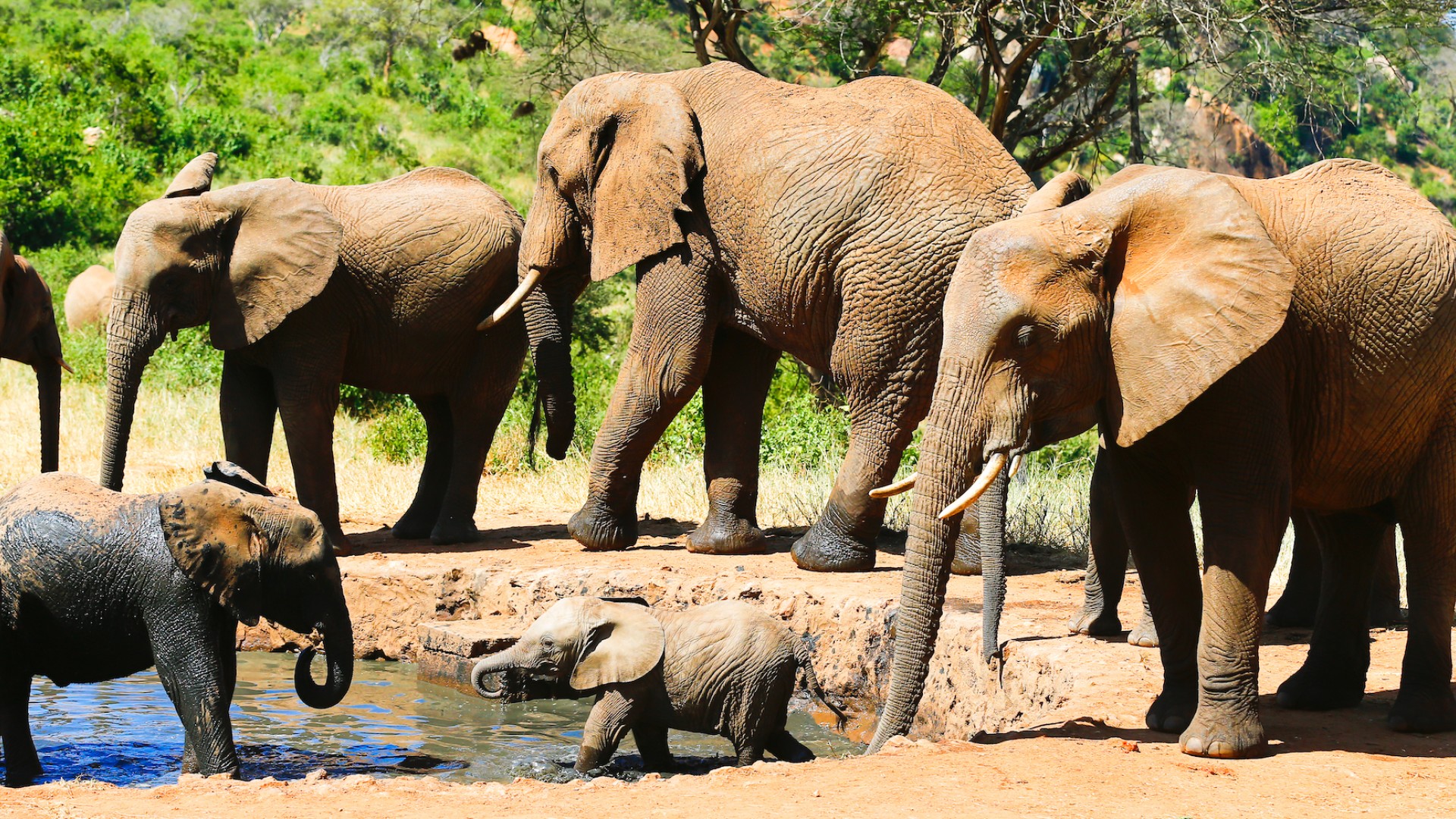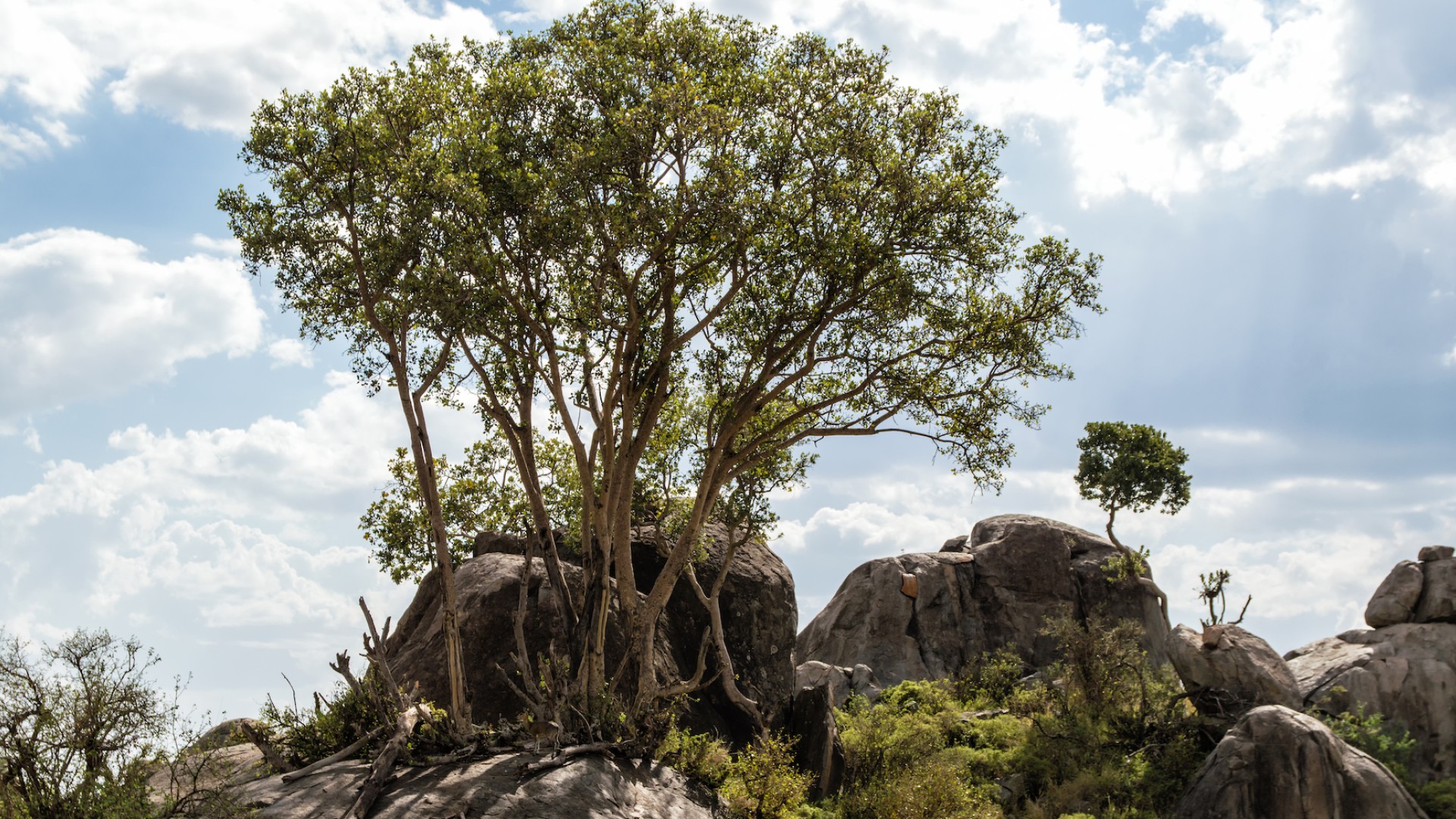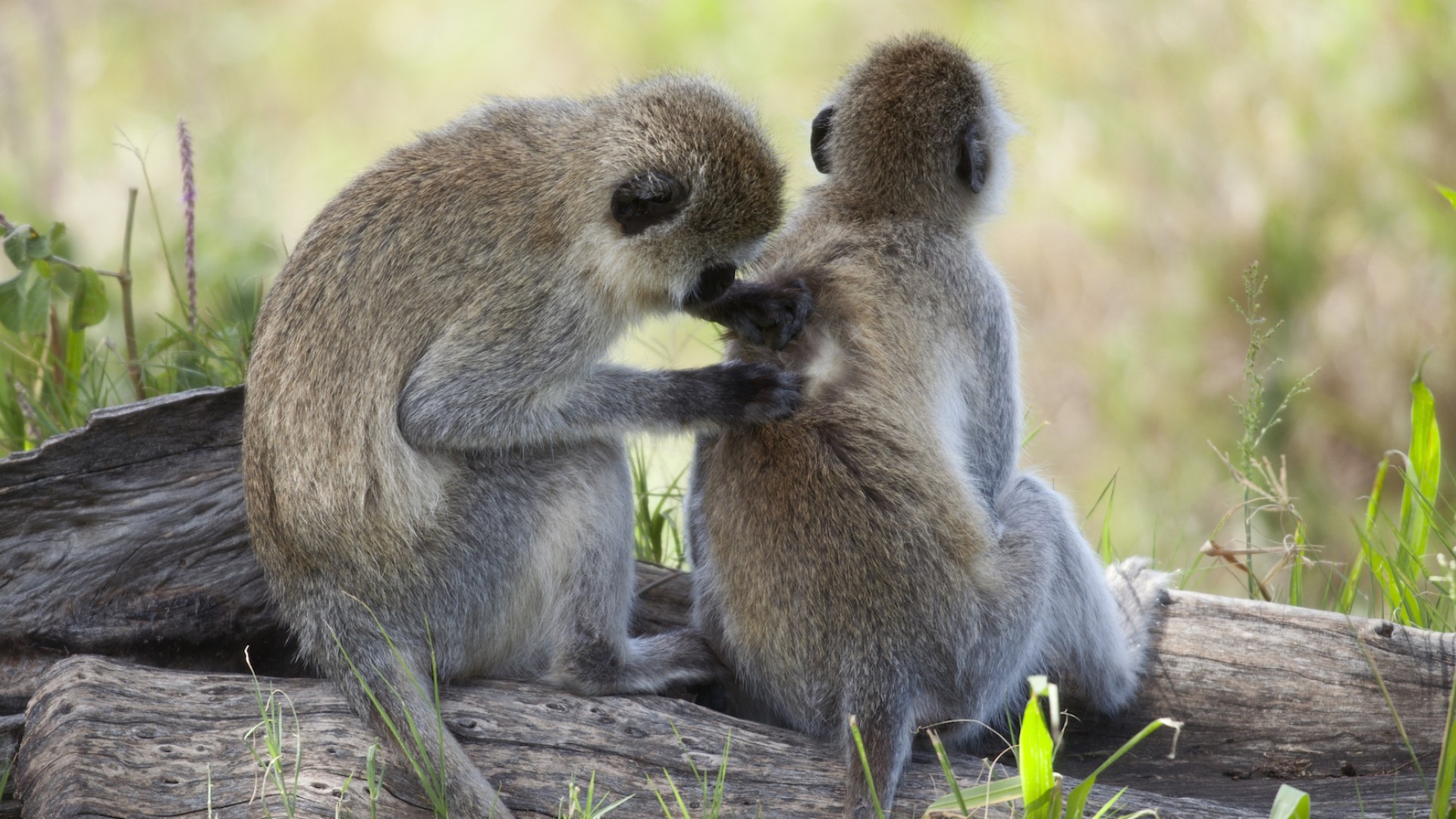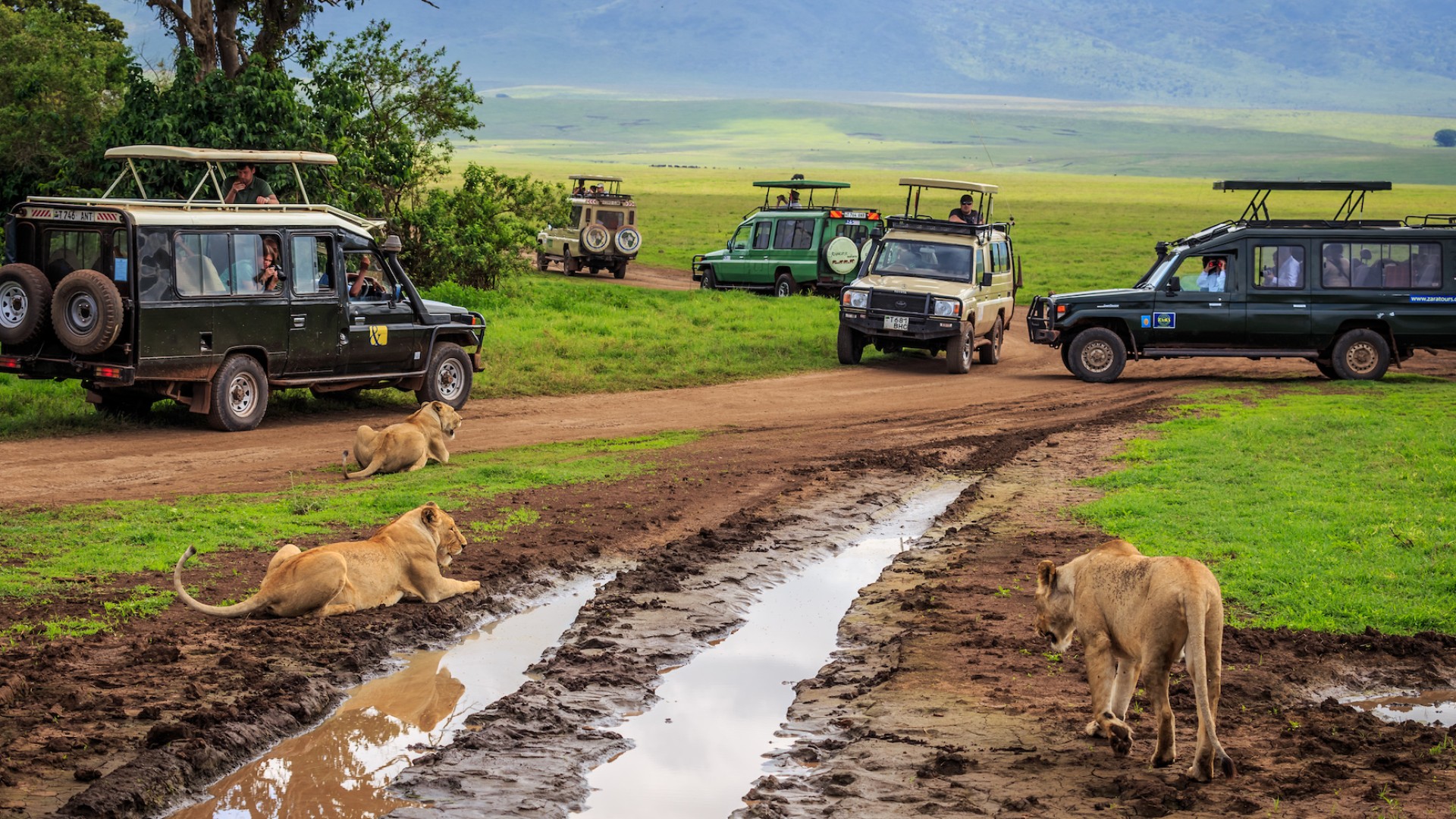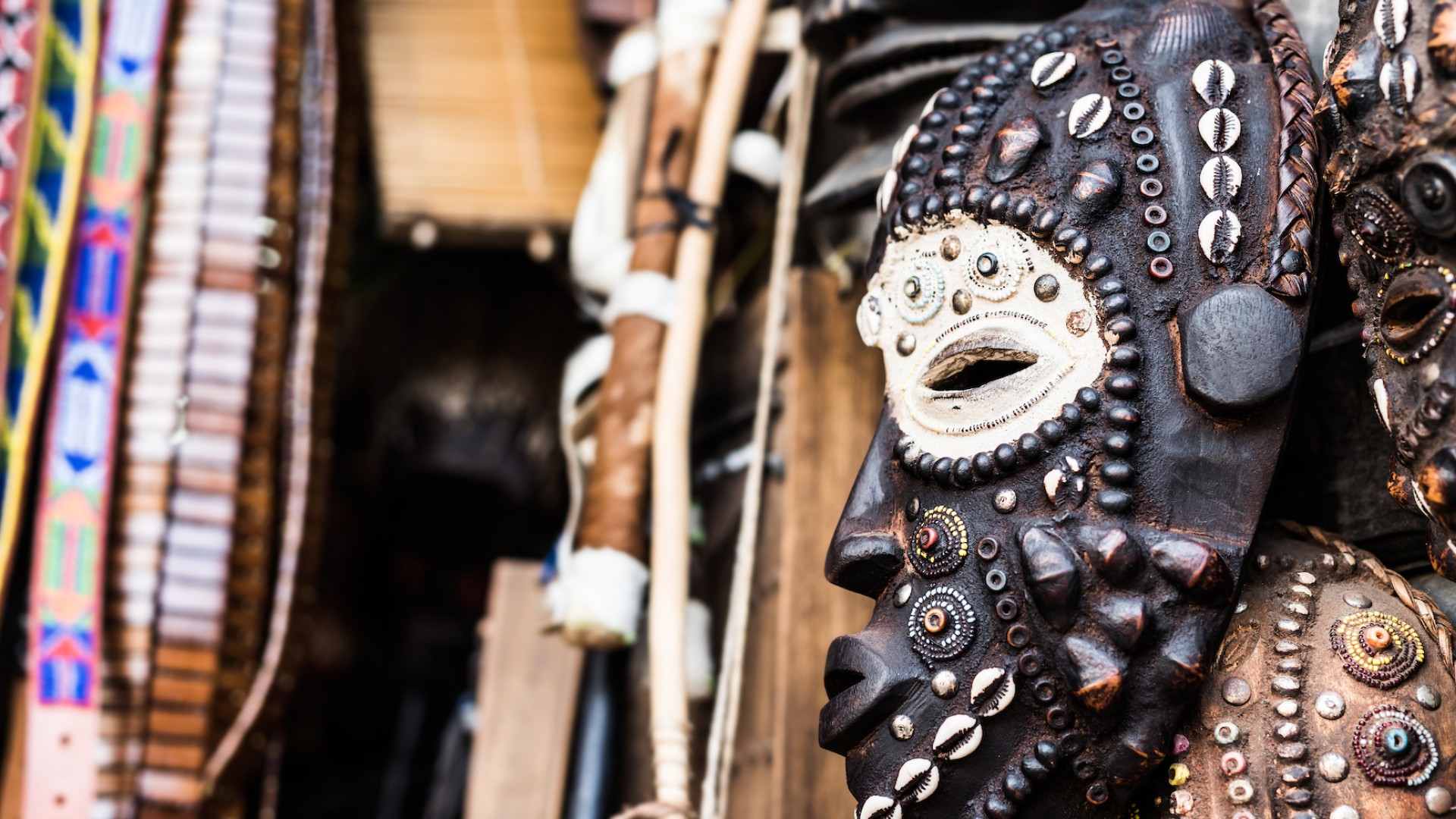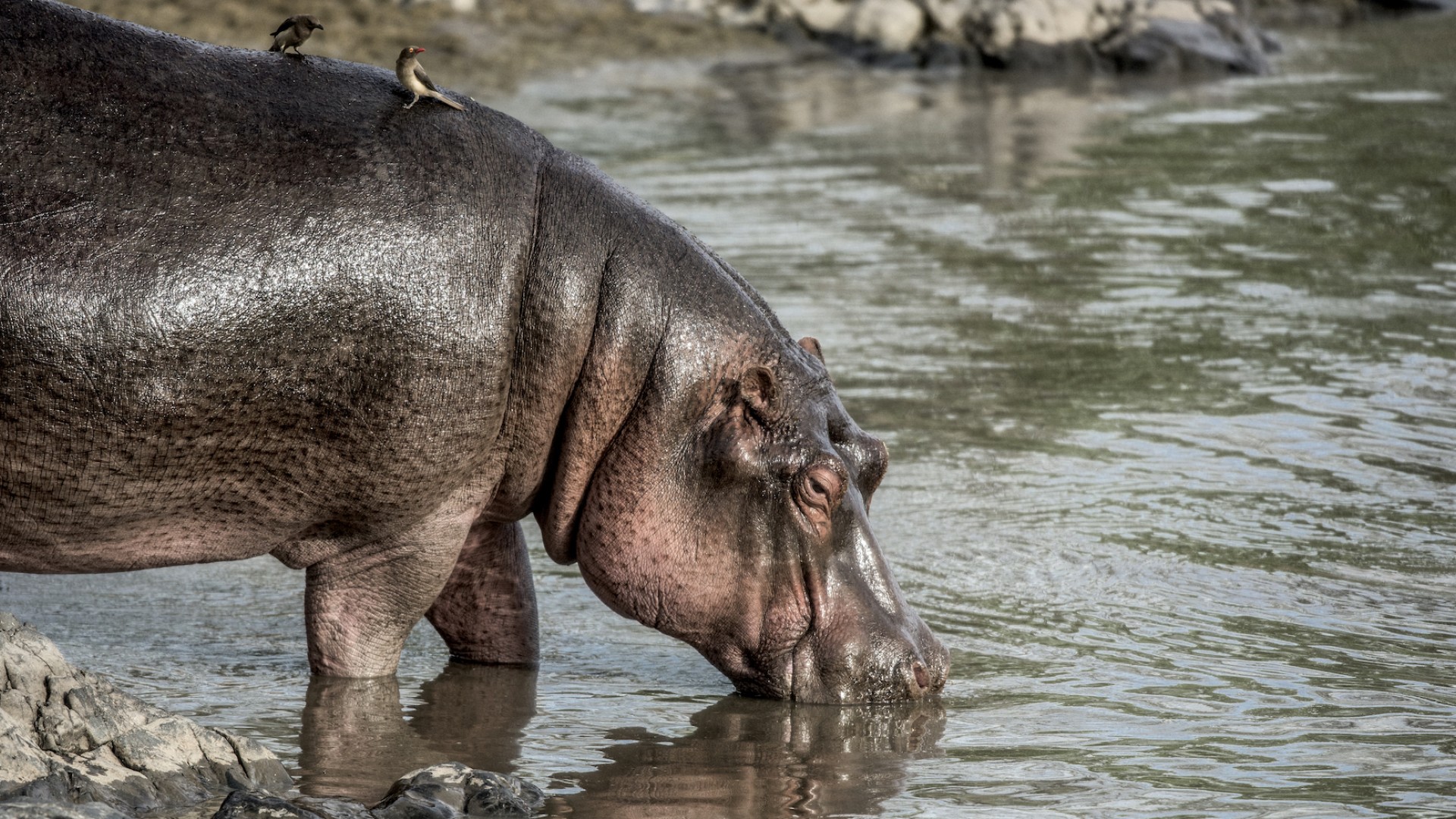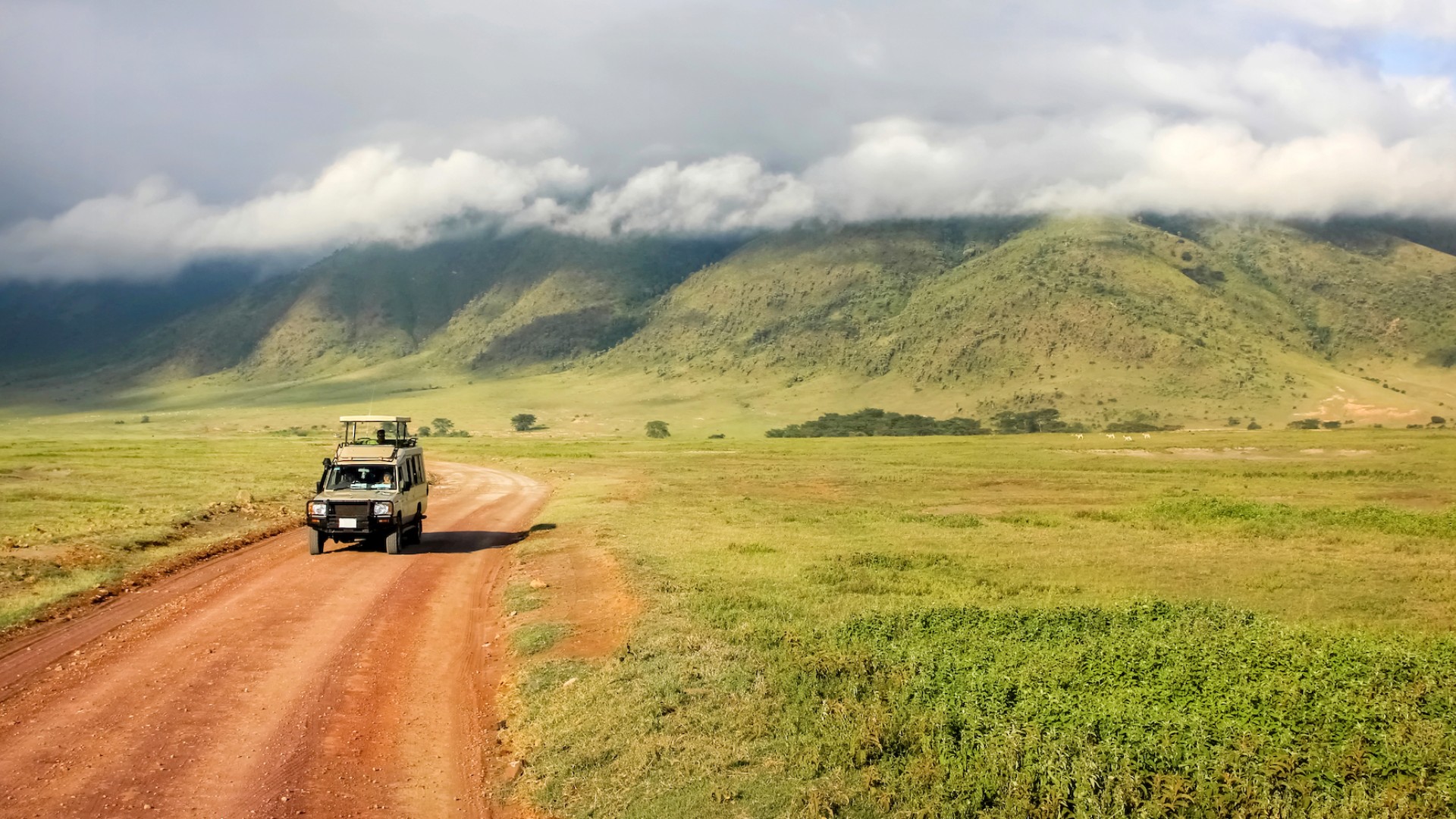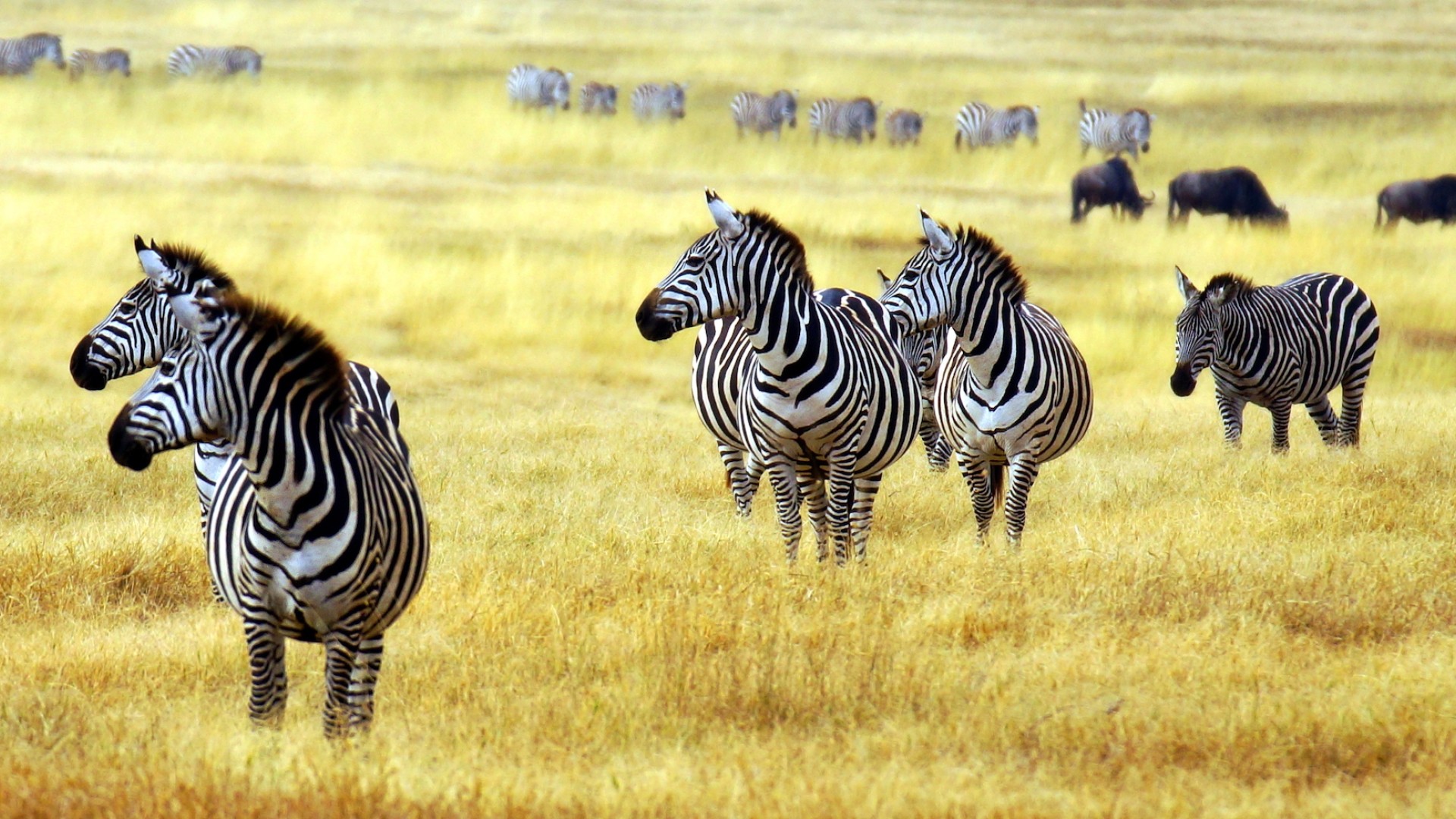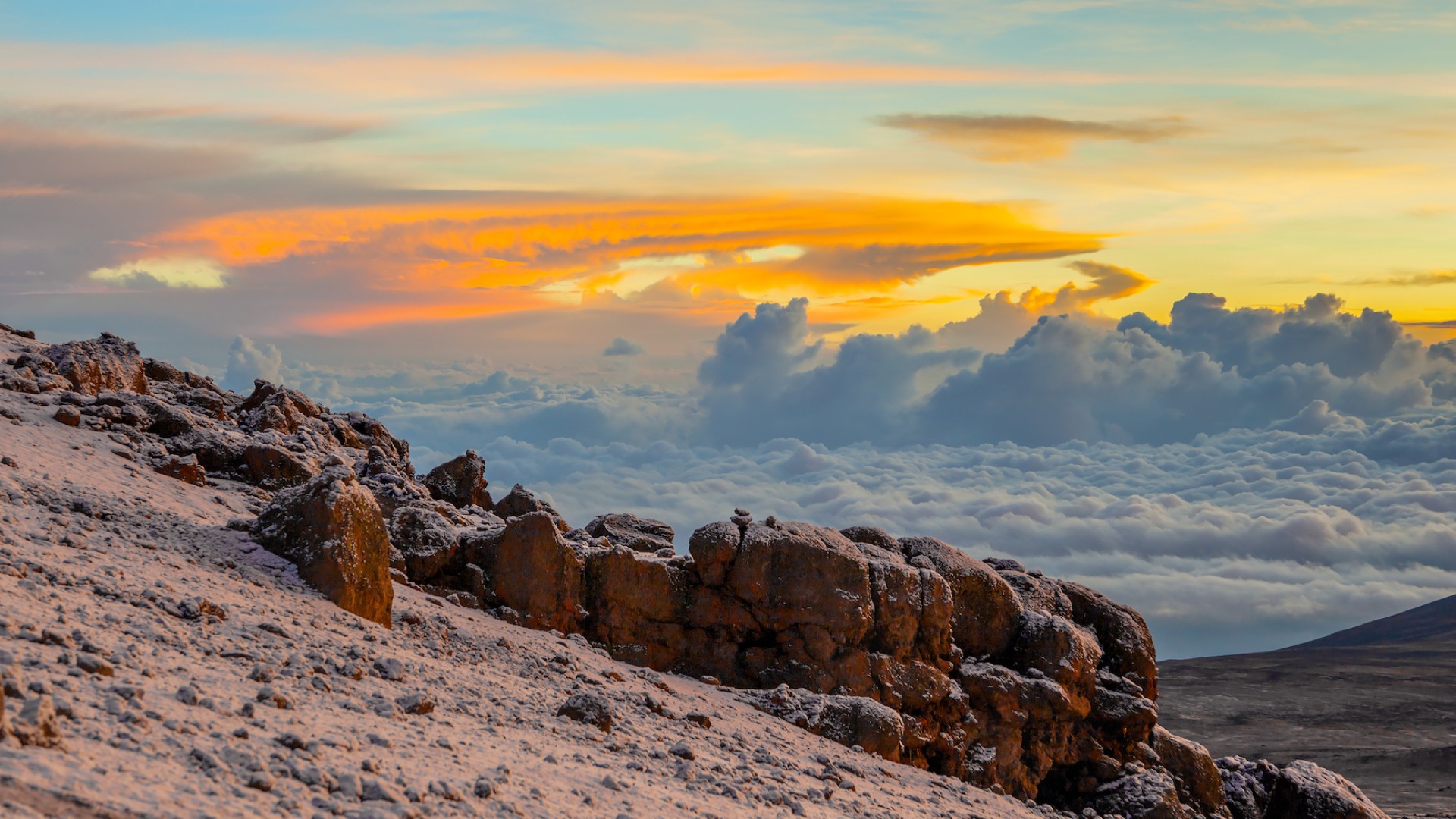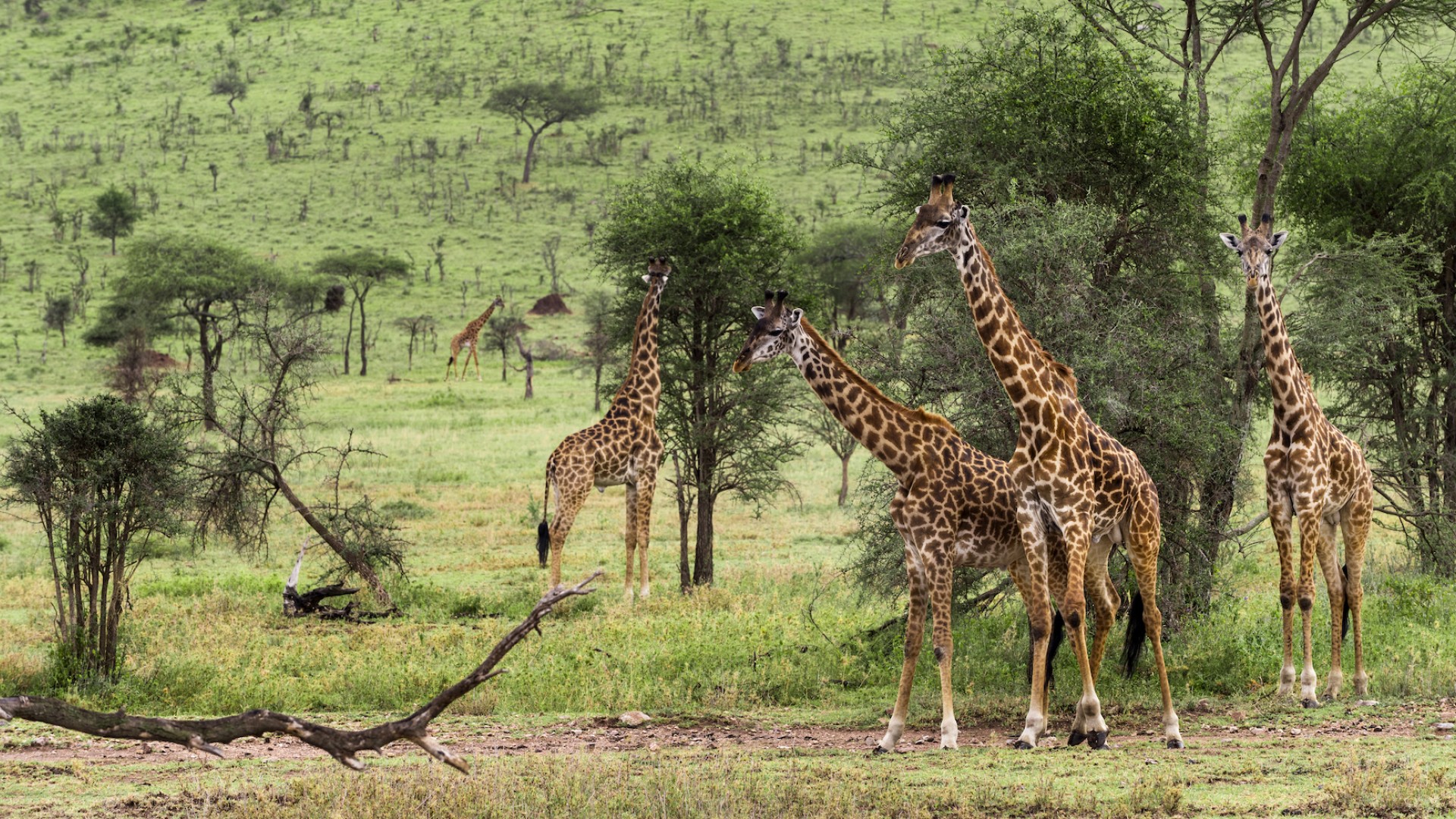Overview
Home to some of East Africa’s most exhilarating wildlife-viewing experiences, Tanzania is rapidly becoming a must-visit destination. It’s here that you’ll find the iconic Serengeti National Park and the spellbindingly beautiful Ngorongoro Crater Conservation Area (both a setting for the Great Wildebeest Migration), as well as Africa’s highest peak, Mount Kilimanjaro.
Tanzania is home to the largest concentration of wildlife per square kilometer, making it a dream destination for wildlife photographers and nature lovers. You can birdwatch in Arusha National Park, slowly paddle along the shores of Momela Lake, or hike through the foothills of Mt. Meru while immersing yourself in the country’s cultural richness. Aside from its extraordinary landscapes, Tanzania boasts an idyllic stretch of Indian Ocean coastline that’s home to the exotic island of Zanzibar, the perfect post-safari destination.
Custom Tours in Tanzania
Here at Adventure Unbound, Tanzania is one of our favorite destinations and we’ve spent years exploring the country from top to toe. We draw on our in-depth knowledge of East Africa to craft immersive journeys that will take you well off the beaten tourist track while also offering a unique take on well-trodden gems.
During our travels, we have formed lasting relationships with locals and work closely with on-the-ground businesses to nurture responsible travel adventures. As a result, our itineraries are custom-designed to reflect your interests while supporting tourism initiatives that are sustainable and enriching for local communities.
To get started, please fill out the form below, or you can learn more by reading some of our most frequently asked questions.
Image & Video Gallery
Related Blogs
FAQ's
How do I get to Tanzania?
Julius Nyerere International Airport in Dar es Salaam is the main aviation gateway to Tanzania and has flights to destinations across Africa, the Middle East, and Europe. International flights also connect to Kilimanjaro International Airport, which serves as a gateway to the Northern Circuit, or you can get a domestic flight to Arusha Airport. For Zanzibar, there are international connections to and from Zanzibar International Airport. In addition to scheduled domestic flights, charter flights are readily available for getting to Tanzania’s remote parks and wildlife reserves.
Do I need a visa to visit Tanzania?
Passport holders of most nationalities require an electronic visa to enter Tanzania and these can be applied for online. The application is relatively quick and easy, provided you have all of your documents in order. Most importantly, you’ll need a passport that is valid for at least six months from the time of arrival and with at least two free pages for stamps. Single-entry visas are also available on arrival at some ports of entry.
What is the official language of Tanzania?
Swahili and English are the official languages in Tanzania, with more people speaking the former than the latter. But there are more than 120 languages spoken throughout the country, most of which are in the Niger-Congo and Nilo-Saharan families.
What currency is used in Tanzania? Can I use my debit or credit card?
The Tanzanian Shilling is the official currency used in Tanzania, with 1 USD equalling around 2,300 Tanzanian Shillings at the time of writing. USD, Euros, and UK Pounds are readily accepted at lodges, camps, and tourist restaurants, although it’s best to have a few Shilling on hand. You can easily withdraw Shillings at ATMs, which are found throughout Tanzania, and major international credit and debit cards are accepted at most tourist businesses.
Can I drink the tap water in Tanzania?
The tap water in Tanzania is inconsistent and not always safe to drink. But you’ll find bottled mineral water is readily available at most shops and supermarkets, as well as at camps and lodges.
Do I need any vaccinations to visit Tanzania?
There are no compulsory vaccinations required to enter Tanzania, although it’s recommended that you are protected against Hepatitis A, Polio, and Tetanus. You may also want to discuss with your health provider regarding vaccinations against Hepatitis B, Rabies, and Typhoid. Proof of a yellow fever vaccination is required if you are coming from or have transited through some parts of Africa and South America. Being vaccinated against Covid-19 is also highly recommended.
Is there malaria in Tanzania?
There is a high risk of malaria throughout the year in Tanzania, particularly in low-lying areas. Malaria precautions are highly recommended, and you should also wear long sleeves and pants in the evening and early morning to prevent bites.
What type of electrical outlets do they use in Tanzania?
Tanzania uses Type G (three rectangular pins in a triangular pattern) and Type D plugs (three rectangular pins in a triangular pattern) and operates on a 240V supply voltage and 50Hz.
How can I prepare for a safari tour? What should I pack?
Casual, comfortable garments that are quick drying are a staple of safari travel, with neutral colors such as beige, khaki, or green helping you to blend in with the natural environment. Always pack a couple of long sleeves shirts and long pants that will guard against mosquito bites at night.
Don’t forget to pack a sweater for the chilly early mornings and evenings, plus a lightweight waterproof jacket. Walking shoes with good grip and flip flops/sandals for getting around the camp are the only footwear you’ll need!
In terms of accessories, pack a broad-rimmed hat, sunglasses, and sunscreen, as well as insect repellant and any prescription medication to might need. A pair of binoculars may also come in useful and most guests opt to bring a high-quality camera to document their experiences.
Most importantly, don’t forget your passport and any vaccination records you need, as well as documentation of a comprehensive travel insurance policy.
Can I book a custom safari for my family? What is the minimum age requirement?
All of our private tours are custom-designed, including family safaris. Depending on your interests and preferred destinations, we can tailor an itinerary to suit. The minimum age requirement for children differs depending on the places you want to visit and the activities you want to participate in.
Can you accommodate dietary restrictions?
On all of our custom safaris and private tours, we do our best to accommodate dietary restrictions, provided we have prior knowledge. That being said, in some remote areas, particular ingredients may be difficult to find and suitable alternatives will be sought.
What are the accommodations like?
Our accommodation options range from basic camping to glamping at upmarket safari camps, as well as family-focused resorts and high-end lodges. In some destinations, we can also create itineraries staying at private villas, complete with in-house staff. Glamping tents are among the most popular of our accommodation options as they immerse you in the wilderness environment while keeping bugs and wildlife out.


